Enos Farms | Harvest Moon Dinner – Transcript
– Announcer: This week on Wisconsin Foodie:
[upbeat country music]
– Luke: hose tacos were the bomb. I would love if there’s a possibility to be able to come out and see the farm.
– Jeremy Lynch: Really, to see the farm at its best, I think the Harvest Moon Dinner is, that’s our showcase.
– Erin Crooks Lynch: Whether it’s just home bakers at the farmer’s markets or chefs, they always come back and say, like, “The flavor is amazing, the flavor is amazing.”
– We’re growing what we call, “the wine grapes of apples.” That you’re welcome to try that. See what, see what ‘Luke, the chef’ thinks.
– Luke: This has gotta be the most unique farm dinners I’ve ever attended. It’s spread out over acres, with food being served in stages. Jeremy and Erin have created a community of local farmers that are going to be featured, throughout this dinner. And I’m super excited that they saved me a space at the table.
– Announcer: Wisconsin Foodie would like to thank the following underwriters:
– Introducing Organic Valley Ultra, milk with more protein, half the sugar, and no toxic pesticides. Let’s be honest! None of that healthy stuff really matters unless our kids will drink it.
[dramatic music, mom whispers “C’mon”]
[gulping milk]
[cow moos]
– Yeah, I would drink that.
[mom gasps]
– Do you hear that?
[mom shouts joyfully]
She would drink that!
[cheering, triumphant music]
– Parents are weird.
– Announcer: More protein, half the sugar. Organic Valley Ultra.
– The dairy farmers of Wisconsin are proud to underwrite Wisconsin Foodie, and remind you that in Wisconsin, we dream in cheese.
[crowd cheering]
Just look for our badge. It’s on everything we make.
– Employee-owned New Glarus Brewing Company has been brewing and bottling beer for their friends only in Wisconsin since 1993. Just a short drive from Madison, come visit Swissconsin, and see where your beer’s made.
– Wisconsin’s great outdoors has something for everyone. Come for the adventure, stay for the memories. Go wild in Wisconsin. To build your adventure visit dnr.wi.gov.
– From production to processing, right down to our plates, there are over 15,000 employers in Wisconsin with career opportunities to fulfill your dreams and feed the world. Hungry for more? Shape your career with these companies and others at fabwisconsin.com.
– Specialty crop craft beverages use fruit grown on Wisconsin orchards and vineyards to create award-winning ciders and wines. Wisconsin’s cold climate creates characteristics and complexities that make this craft beverage unique to our state.
– Society Insurance.
Freshwater Family Farms.
Also, with the support of the Friends of PBS Wisconsin.
[upbeat music]
– Luke Zahm: We are a collection of the finest farmers, food producers, and chefs on the planet. We are a merging of cultures and ideas shaped by this land.
[sizzling]
We are a gathering of the waters, and together, we shape a new identity to carry us into the future.
[glasses clink]
[knife scrapes]
We are storytellers. We are Wisconsin Foodie.
[tearing paper]
– Hugh Masterson: All right, Wisconsin. It’s great to be back, thank you!
[“North Country” by Hugh Bob & the Hustle]
- God, I miss the north country
- No power lines No dead-end streets
- Mother Nature waits for me
- Back in the north
[“North Country” continues]
[country alt-rock music]
– So we’re in Spring Green, and I’m at the infamous venue, whose name I can’t say on television without being censored. But I’m hungry, and I’ve heard there’s some incredible tacos being served up here by Enos Farms, and I need to get some.
Hey, what’s up, guys, how are you?
– Hey, hey.
– Jeremy.
– Luke, how are ya?
– Great, how are you?
– Good, good.
– You got a second?
– Just finishing up here, service at the barn, a little rush.
– Yeah, dude, good to meet you.
– Likewise, likewise.
– Thanks, so I’ve heard so much about the Enos Farm and the Enos tacos, tell us what makes the tacos special.
– Jeremy: Basically, everything on there, came from within about 10 miles of about right here. The pork is ours, the beef is a neighbor, most of the vegetables came from another neighbor, right up the road. The sunflower oil is grown near Door Country.
– The black beans were grown at Meadowlark.
– Meadowlark up in Ridgeway. So people ask us, “Oh, what’s local?” And I say, “Oh, well, the salt came from Utah,” ’cause that’s a shorter list, it’s a lot easier to say.
– Luke: How many tacos do you think you made tonight?
– Jeremy: Just over 400.
– Luke: Wow.
– Jeremy: In about an hour.
– Luke: That’s great, that incredible. You guys are cranking them out here. Do you still have some left?
– I could probably scrape something together for you.
– Maybe hook you up.
– Awesome, great, I can’t wait. All right, lets give this pork one a shot first. Really nicely toasted tortilla.
The pork is really juicy, moist. It keeps a little bit of the heat in there. Sunflower seed one. This one is like… this is amazingly creative.
I think to do like a vegetarian or a vegan taco, you know, that has sustenance and body. That’s one of the things that true artisans really kinda get into. And this thing looks amazing.
That’s really, really good. You know, the little bit of that sunflower oil from Door Country, on the skillet, really combines well with that bean and the sunflower. And its got a little bit of heat to it, I love it. Beef tacos are the easiest ones to mess up, but this already I can see scallions and chives,
this thing is packed full of flavor.
It tastes exactly like summer sausage.
Whoa. That’s the most unique taco I’ve ever tasted. Grass-fed beef from Seven Seeds Farm, that slaw, that yogurt, the hot sauce, it all comes together and its delicious.
[upbeat rock music]
Those tacos were the bomb!
– Great, great.
– Thank you so much. That was amazing.
– Glad, glad, glad, glad.
– Yeah, I appreciate it.
– Yep.
– I would love, if there’s a possibility, to be able to come out and see the farm sometime. Do you think that’s possible?
– Absolutely.
– Yeah, the pigs are a lot of fun, they’re– you know, the cuter they are, the better they taste think. So, you know, that’s fun. But really to see the farm at its best, I think the Harvest Moon Dinner, that’s our showcase. So, I’d like you to come to that, actually. I think that’d be a lot of fun.
– That sounds like my kind of party.
[upbeat rock music]
[bright country music]
Today we’re visiting Jeremy Lynch, in the Driftless Hills outside of Spring Green. Later he and his partner, Erin Crooks, will be hosting the Harvest Moon Dinner. But before we take our place at the table, I wanna learn more about the animals that he raises on the farm.
– Jeremy: My great, great, great grandfather came from Wales in 1840. The guy was 41 years old and had, I don’t know, seven kids, I believe, at that moment, and proceeded to have another three, four kids here. The youngest of which being Enos.
When time came for him to marry and settle down, he was able to buy this property here. And he lived here and farmed here until 1942.
When he died, it was sold. So, it was out of the family for 80 years. So when the opportunity arose in 2001, to get a corner of Enos’ farm back, and before you know it, I’m living in a straw-veiled greenhouse on the top of the ridge. You know, growing mixed greens and strawberries.
– Luke: How did you make that transition from vegetable farming into your current practices?
– I grew up in Iowa, where there’s more hogs than people. I kinda had an inborn love of pork at a certain level. So, the first year, I just bought feeder hogs, but I could quickly see the recommended diet just wasn’t working, you know. That corn focused diet, corn is largely sugar, you know. It’s very inflammatory. So it does amp up their metabolism, it does produce pork very quickly, but their whole system is inflamed. That’s when I did a little more research and realized that these animals aren’t designed, they didn’t evolve with that kind of diet. They were foraging, they were grazing, having a lot more fiber, having to do a lot more work. So, I just felt like, “Well, can I get away from the grain?” You know pigs are really omnivorous, they’re happy to eat grubs and worms, they’re eating roots, they’re eating tubers, or whatever. Apples. All the things that are available here. These pigs are very intelligent, they are seeking out the best food that they can find. They are picking and choosing, they know what their dietary needs are better than I do. So over the course of the summer, there’s a great diversity of things that are falling, and that they can eat. And as we rotate them around, I try to chase what’s productive.
[pig snorting]
[pig grunts, munches]
– Luke: Well these definitely look like happy animals, these are by far the happiest pigs I’ve ever seen.
[Jeremy laughing]
They look healthy and they are doing exactly what they’re supposed to do, what nature intended.
– Yeah, yeah.
– Which is great.
– Jeremy: Yeah, let pigs be pigs, and they’re gonna be delicious.
– Right. How would other farmers in the area– I mean, I know that we are getting ready to do the Harvest Moon Dinner, and, who’s one of the people that you would consider allies?
– Driftless Area, as you know, all these little rolling hills and micro-climates, these little pockets have done kind of some magical things for Wisconsin agriculture in that you can’t get too big. So, it’s been really great because it has fostered all these little incubator farms almost. And I would say top among my list, another couple working together, John and Halee Wepking, with Meadowlark Organics, they’re just up the road in Ridgeway.
– Luke: While we let Jeremy prepare for dinner, lets check out some of the other farmers who will be featured on the menu later tonight.
– My name’s John Wepking, I’m a farmer here at Meadowlark Organics. So my wife and I were actually working at Prune, which is a restaurant in New York City. We were both in the kitchen there. I worked there for about a year, and we both quit. And so, we first came back here, to try to work my family’s farm but that didn’t work for a variety of family reasons. We got hired here on a Craigslist ad, and Paul, who’s our boss, he’s had a long history in dairy. He was a grass dairyman for 20 years, and sold the cows and then went into organic grains. Then we came in with our food background, and he was very open and adaptable and saw our ideas, and encouraged us to plant crazy stuff like this. Open-pollinated corn, which is what were standing in here, which is really unique. Almost all corn that’s grown now is hybridized. So this is the stuff where we actually go out in usually like September, October. Before we combine and hand-select the best ears, for what were trying to do to maintain the biodiversity within the corn we have. And then also to improve yield, and how well it stands, and stuff like that. And when you’re selecting ears and stuff, you’re also adapting the genetics to the actual landscape of Ridgeway. So then that stuff that we hand select, we’ll shell that and that will be the seed for the next year. And it’s all a mix of like all different flint corn genetics. Flint is like a harder corn that’s not as well suited for distilling, or for animal feed. But its really good for doing polenta or grits and stuff like that. But then also rye, spelt, winter wheat, spring wheat, buckwheat. And we grow cranberry beans, which is like borlotti beans. Used a lot in Italian cooking, and they are really, really nice.
– These are Eclipse Black Beans, Enos farms has started using them for all their tacos and stuff. Then some of our heritage varieties of flour, this is our Turkey Red, which is winter wheat. Then we have some red fife and rye. I think our experience in kitchens, it definitely guides us, like we kind of know what is sellable. But it also is just helpful in having conversations with chefs, and bakers, and understanding the quality and consistency that’s critical when youre running a restaurant or a bakery.
So we sell directly to chefs. In Madison, Madison Sourdough buys our grain and they mill it in-house and its a part of each of their breads that they make. And Origin Breads, in Madison, they use 100% of our flour. La Merenda in Milwaukee uses our beans.
Also, at farmers markets, and we sell them online. Yeah, we have an online store. Whether its just home bakers at the farmers markets or chefs who get it, like, they always come back and say, “The flavor is amazing, the flavor’s amazing, it doesn’t compare, you know?” But it’s awesome, I mean, it’s cool to really be growing something that people get excited about and that they really value.
[happy country music]
– Luke: We’re at the Cider Farm in Iowa County, and it’s a beautiful autumn day and I’m with Deirdre. Owner and co-owner actually of the Cider Farm. This is not a standard, run of the mill orchard.
– Yes, that’s right, we’re growing what we call, “the wine grapes of apples.”
– Okay.
– So, I especially focus on varieties that have tannins, ’cause like in a wine grape they add complexity, mouthfeel, structure to the ciders. So this is a variety we’re growing called Dubonnet. So, it’s one of my favorite of the English tannic varieties. They call them bittersweets because the tannin can literally taste a little bitter in the raw apple.
– But these are not common to America, is that correct?
– That’s right. When John and I started this back in 2003, we looked at what varieties are the best ones and we found out about English and French apples that have tannins. Then we also quickly found out those trees are not commercially available in the US. So we took a class on grafting, and we learned to make them from someone who already had some of these varieties in his own little, little orchard.
– I’m really curious to try it.
– Yeah, well that’s the best way.
– Luke: Okay.
– This has a mild tannin in it, but you’re welcome to try that.
– Luke: I will.
– Deirdre Birmingham: See what ‘Luke, the chef’ thinks.
– Okay, here we go.
[chomps, munches]
– And if you spit it out, I won’t be offended. It’s a mild tannin so you might be able to enjoy it even.
– So it’s really interesting, you know, it almost takes all the moisture out of your mouth right away. So that feeling that I’m getting of the dryness in my mouth, those are tannins. What are tannins?
– Well, tannins are in a family of antioxidants you might say. They’re what give the complexity and mouthfeel.
– This is not one you’d want to put in your lunchbox.
[Deirdre laughing]
– Deirdre: You’d need to get them into a beverage. They’re for drinking.
– Yeah, exactly.
[soft country music]
Can you walk me through the process of actually turning these into delicious cider?
– Deirdre: We grow fruit to be very ripe, so we want it dropping off the trees, we want all the sugar we can get. We want all the starch converted to sugar. ‘Cause that’s what were fermenting out, that’s what gives you the alcohol. Be it for your cider or for your apple brandy. So, we get the apples when they’re at their peak ripeness. And then they’re milled, so they come out almost like an applesauce. And then they drop down into a press, ours is what’s known as a belt press. So they’re squeezed between these rollers, in kind of a conveyor belt, that moves all that through, so juice drops down and goes into a juice pan that’s pumped into our totes. If it’s going for the apple brandy then we take it immediately to Yahara Bay. They’ll get it fermenting with the champagne yeast right when it gets there. And then it will be double-distilled. And then, the bulk of the juice is actually gonna go for our ciders. So, some of it will go straight into fermentation tanks.
– Luke: When you say goes to the fermentation tanks, are those here on the farm?
– No, so we have a cidery and tasting room in Madison. That’s where the bottling takes place or the kegging ’cause we also do some small kegs. But our bottles of ciders can be purchased at our tasting room, and then also, we’re throughout Wisconsin. We’re also in Chicago, as well.
– Luke: For being such an exclusive product, you guys are doing a good job getting it out there in the world where people can find it.
– Deirdre: Yeah, we’re trying. The best thing is when people ask for it.
– Luke: Sure. The Cider Farm, ask for it by name, it works.
– Deirdre: It does, it does.
– So, this one I feel like, in the spirit of fanciness, I should maybe drink this with the pinky out.
– As you wish.
– Okay, thank you so much.
– Mm-hmm.
Whoa, you get sweet right away, so the front part of your tongue is like really, really activated, but then, that tannin kinda creeps in the back. It starts pushing that flavor profile towards the back of your palette.
[upbeat country music]
That’s good even with the pinky down.
[Deirdre laughing]
I like it. This is fascinating and I can’t wait to see Cider Farm blow up because I have a feeling in a few years, everyone’s going to be saying, “Cider Farm, Cider Farm, Cider Farm,” which is hard to say three times fast.
– Yeah, but we hope so.
[laughing]
[chattering in the background]
– Luke: This has got to be one of the most unique farm dinners I’ve ever attended. It’s spread out over acres with food being served in stages. Jeremy and Erin have created a community of local farmers that are gonna be featured throughout this dinner, and I’m super excited that they saved me a space at the table.
– Would you like some corn chowder?
– Is it hot?
– It is hot.
– All right, let’s see if I can eat this without getting it all over me. I definitely see some sweet corn in here, I see peppers.
I can taste parsley. I get a little bit of spice in there. It tastes like summer.
[soft country music]
– This way, you’re gonna follow the path up the hill. When you get to the top, you take a left. You can leave your cups here if you’d like. They’re all compostable.
[chattering in the background]
– Erin.
– Hey.
– Why are we doing this, like asking me to walk up a hill? Like, you know, moving this party through multiple acres. What’s the deal?
– I came out to the farm when I first met Jeremy, and I was like this is a beautiful place, people need to see it. And so if youre in one location for a dinner, you don’t get to see everything and so, we’re like, “Well, lets put another station somewhere else.” Really, it was Jeremy’s idea to get them to hike on top of a hill so we could watch the full moon rise.
– It’s like interactive, and it shows people the gorgeous landscape of this place.
– Yeah, and that it’s a little rough. What I like doing is taking people out of their comfort zone, When you get really uncomfortable and you overcome something together, there’s this feeling of closeness at the end. So, we’ll see, as the night goes on, people start out kinda nervous, and by the end, they’re like friends. And there’s just a different energy by the end of the night.
– I’m just– I’m thankful to be here, thanks a lot.
– Thank you.
– Of course.
[soft country music]
[chattering in the background]
– Thank you, quickly what am I eating?
– This is a beef, grass-fed organic beef shish kebab.
– Luke: Awesome.
– From Seven Seeds Farm.
– I like that farm, that’s a good one.
Local cider, local beef, local vegetables, all this is kinda coming together.
That’s good. The freshness of the ingredients means you can taste everything all the way through.
The tannins in the cider, they linger on your palette, kinda like a very rich wine. And I know that that was part of the intention but it creates a really complex flavor profile.
And it’s fun! I mean, this is about as local as it gets.
[soft country music]
It’s time to make our way to the hilltop for the main course, the table is set, beer and wine are being poured, and the plates are filled with local fare. Of course, all are meant to complement the Enos Farms’ pork.
So, the pork, one of the reasons this pork is spectacular, is because it has been brined. You can taste it. There’s moisture in the process. The fact that they seared the outside, and we can see some of that char, really allows those juices to stay inside the actual cuts of meat.
All these things line up on the plate, we have Meadowlark Organics, one of my absolute favorite farms. And their grits, their polenta, a lot of their wheat varietals are fantastic. They’re buttery, they’re smooth, it really is kind of a slam dunk.
Kale, beets, calypso beans: its like a new umami blast. You get a lot of the earthiness. This time of year, the beets are a little bit sweeter. As it gets colder, those sugars concentrate.
And they blend so well. With the creaminess of the calypso beans, the cream sauce, the polenta, it’s literally one big composed plate. It’s gorgeous.
[soft country music]
One of the reasons that this farm dinner is so different and spectacular is because this plate, these beverages, the whole experience, ties the entire Driftless region together. Jeremy and Erin have worked tirelessly, to put together this idea of being on this place and expressing their love for the food and the producers in the area on these plates. It’s truly a unique experience and one not to be missed.
[soft country music]
– I’ve been waiting for that moon, once the moon kinda lights all this up, yeah, it’s just magic.
[chattering in the background]
– What makes this farm different dinner?
[laughing]
– Luke: One year, in our apple orchard growing up, we had a big paper wasp nest.
– Deirdre: Oh, yes.
– And so we were about 30 yards away and my dad looked at me, he was like, bet you can’t hit that. And, literally, picked up one apple and just chucked it and nailed it.
– Oh, wow.
– Hit the nest and all those–
[cracking up]
[mock-screaming]
He just is getting lit up, I didn’t get touched by the bees.
[mock-screaming]
He’s rolling on the ground.
– Oh, they are terrible.
– Oh man, it was so good.
– Announcer: Wisconsin Foodie would like to thank the following underwriters:
– Introducing Organic Valley Ultra, milk with more protein, half the sugar, and no toxic pesticides. Let’s be honest! None of that healthy stuff really matters unless our kids will drink it.
[dramatic music]
[mom whispers, “c’mon”]
[gulping milk]
[cow moos]
– Yeah, I would drink that.
[mom gasps]
– Do you hear that?
[mom shouts joyfully]
She would drink that!
[cheering, triumphant music]
– Parents are weird.
– Announcer: More protein, half the sugar. Organic Valley Ultra.
– The dairy farmers of Wisconsin are proud to underwrite Wisconsin Foodie, and remind you that, in Wisconsin we dream in cheese.
[crowd cheering]
Just look for our badge. It’s on everything we make.
Employee-owned New Glarus Brewing Company has been brewing and bottling beer for their friends only in Wisconsin since 1993. Just a short drive from Madison, come visit Swissconsin, and see where your beer’s made.
– Wisconsin’s great outdoors has something for everyone. Come for the adventure, stay for the memories. Go wild in Wisconsin. To build your adventure visit dnr.wi.gov.
– From production to processing, right down to our plates, there are over 15,000 employers in Wisconsin with career opportunities to fulfill your dreams and feed the world. Hungry for more? Shape your career with these companies and others at fabwisconsin.com.
– Specialty crop craft beverages use fruit grown on Wisconsin orchards and vineyards to create award-winning ciders and wines. Wisconsin’s cold climate creates characteristics and complexities that make this craft beverage unique to our state.
– Society Insurance.
Freshwater Family Farms.
- Henry and Sons Bourbon.
Something Special from Wisconsin.
Marcus Hotels and Resorts.
Central Wisconsin Craft Collective.
91.7 W-M-S-E.
Edible Milwaukee magazine.
Also, with the support of the Friends of PBS Wisconsin.
For more information about upcoming Wisconsin Foodie special events and dinners, please go to WisconsinFoodie.com.
Still hungry for more? Get connected on Facebook and Instagram, and also make sure to subscribe to our YouTube channel, where you’ll find past episodes and special segments.
Search Episodes
Related Stories from PBS Wisconsin's Blog

Donate to sign up. Activate and sign in to Passport. It's that easy to help PBS Wisconsin serve your community through media that educates, inspires, and entertains.
Make your membership gift today
Only for new users: Activate Passport using your code or email address
Already a member?
Look up my account
Need some help? Go to FAQ or visit PBS Passport Help
Need help accessing PBS Wisconsin anywhere?

Online Access | Platform & Device Access | Cable or Satellite Access | Over-The-Air Access
Visit Access Guide
Need help accessing PBS Wisconsin anywhere?

Visit Our
Live TV Access Guide
Online AccessPlatform & Device Access
Cable or Satellite Access
Over-The-Air Access
Visit Access Guide
 Passport
Passport








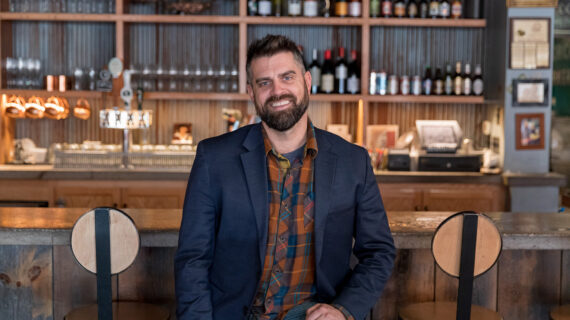
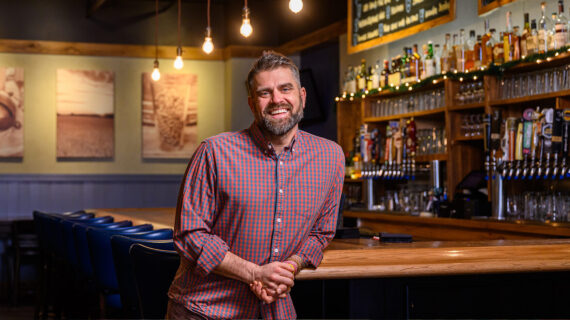
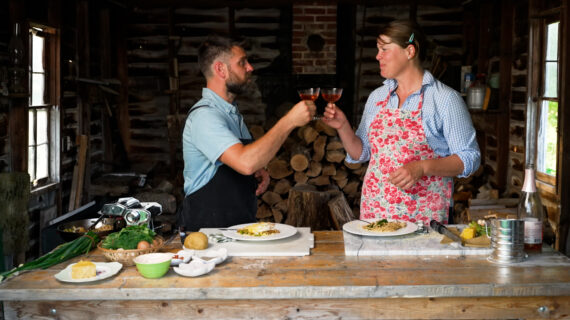
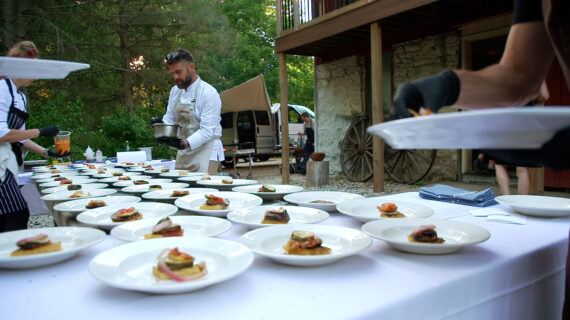
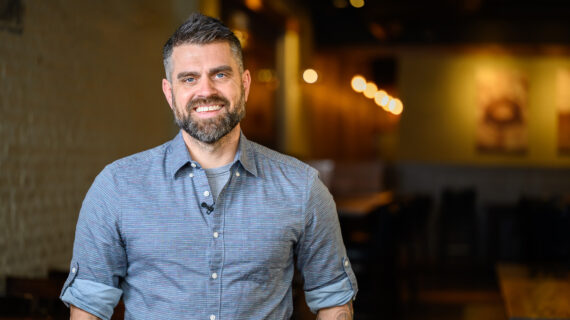
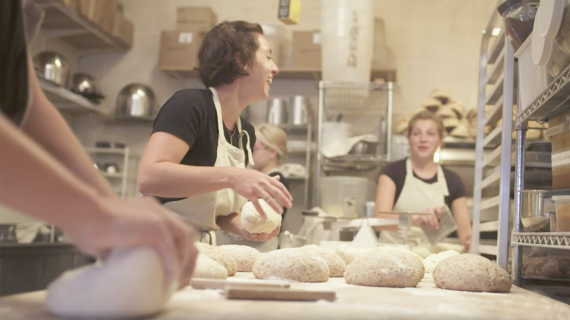


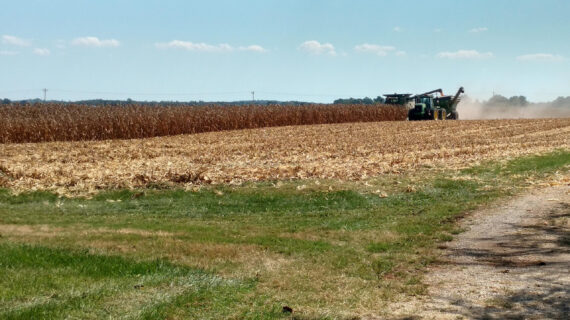

Follow Us